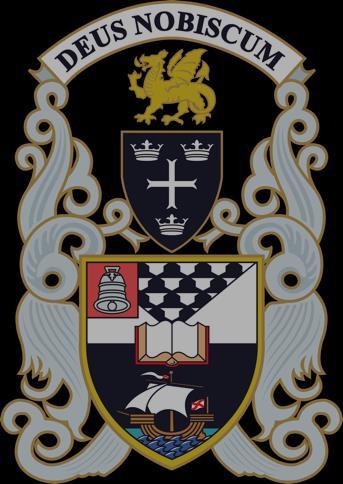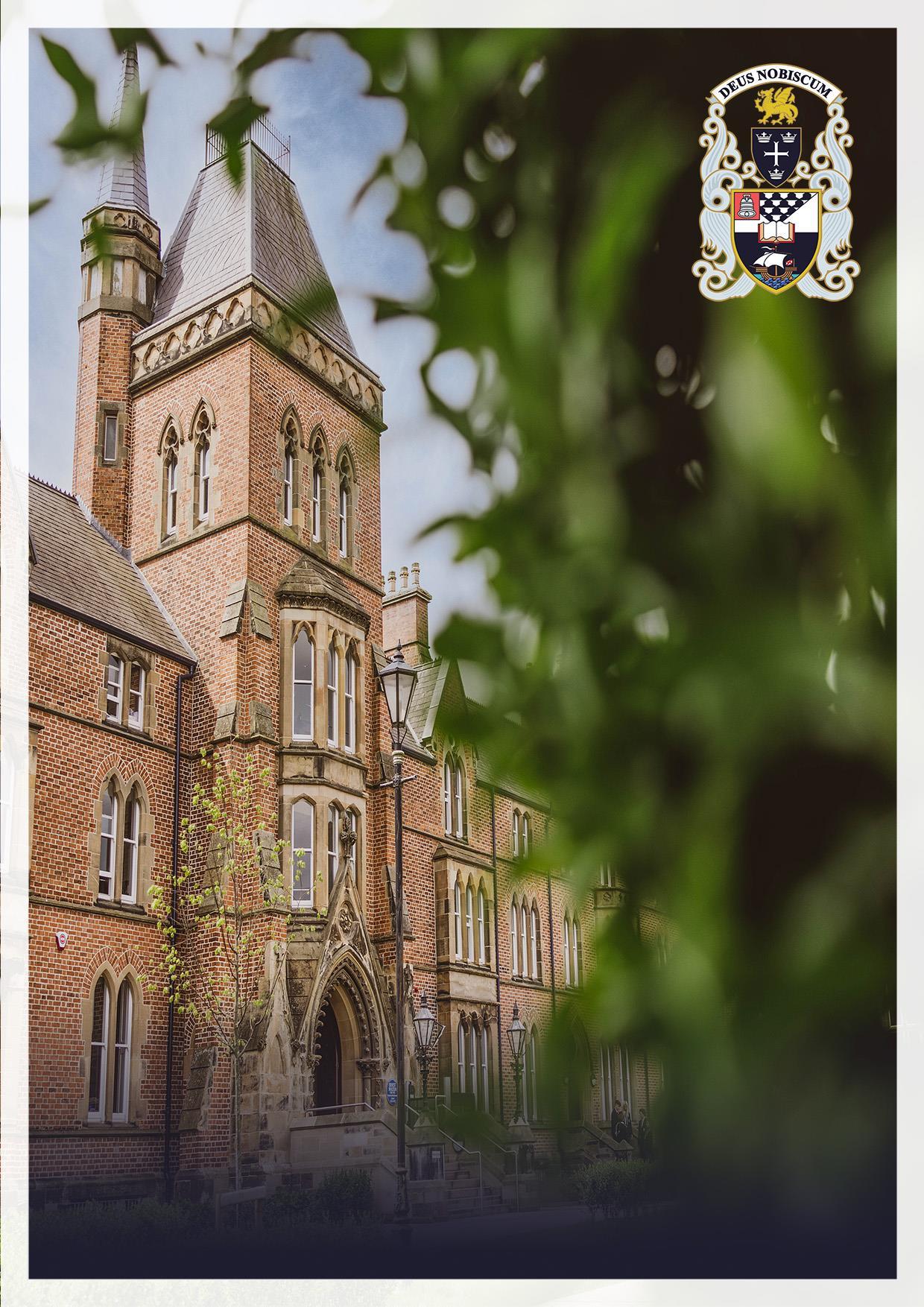

The Key Dates
30 April: UCAS Apply for 2025 available
2 September: Applications can be submitted to UCAS.
23 September: School deadline for most applications to the universities of Oxford and Cambridge and applications for Medicine, Dentistry, Veterinary Science and Veterinary Medicine.
15 October: All applications to universities of Oxford and Cambridge and applications for Medicine, Dentistry, Veterinary Science and Veterinary Medicine must be with UCAS. Forms being sent by school on the 14 October.
12 November: School deadline for UCAS forms.
14 January: Deadline for application to all courses except those listed for the 16 October.
26 February: Extra opens.
6 May Acceptance deadline if all decisions are received by 31 March 2026
3 June Acceptance deadline if all decisions are received by 13 May 2026
4 July: Final date to apply in Extra for 2024. After this date, all applications must be made through clearing. Last date for receipt of applications at UCAS. All applications received later i.e., (18.00 UK time) are automatically entered into clearing.
5 July Clearing open
13 August: GCE A Level Advanced Diploma and Pre-U results are published, and full Clearing information service starts.
University Guidance for Parents
All UK University places are allocated through UCAS (Universities and Colleges Admissions Service). The following flowchart provides an overview of the process. At Methodist College, students will have been guided through the online UCAS application from early June 2024.

First Stop – The Student Sections
How to apply
Applications are made online using our secure web-based application system Apply. Its on-screen help guides users through the application.
Because it is online students can use Apply anywhere that has internet access. They can rework and resave details in their application as often as necessary, before submitting the final version to their teacher, adviser, referee or UCAS, as appropriate.
Students complete up to seven sections (one is for UK applicants only) in their application
• Personal details
• Additional information (UK applicants only)
• Student finance
• Choices
• Education
• Statement
• Employment
As their application progresses to completion, they can see the status of each section.
• Not started
• In progress …
• Completed √
Applicants who apply through a UCAS-registered centre, such as a school, college or careers centre, need the buzzword for their centre.
Number of choices allowed
Each student can make a maximum of five choices on their application, including:
• No more than four choices in any one of medicine, dentistry, veterinary medicine or veterinary science
• No more than one course at either the University of Oxford or the University of Cambridge.
It’s not compulsory to use all five choices. If they apply to fewer than five choices to begin with, they can add more later, as long as they have not replied to their offers. They should, however, remember to check the application deadline for the course.
Invisibility of choices
We send the application on to each of the chosen universities and colleges at the same time. Each university or college has access to the information about their choice only. They must not ask applicants to reveal their other choices.
Only much later in the application cycle, when an applicant has received decisions on all their choices and replied to any offers, will each university or college be able to see details of the other choices. This ensures that each university or college decides independently whether to offer a place and what conditions, if any, to attach to an offer.
Disabilities, special needs and medical conditions
Universities and colleges welcome applications from people with disabilities, special needs or medical conditions, and try to provide as much support as possible.
It’s a good idea to contact individual universities to discuss what they might need as early as possible – even before sending their application.
Universities and colleges will consider the application on the same academic criteria as any other, and any medical information will remain confidential.
If they are concerned about disclosing their disability, please encourage them not to be. Early disclosure will help support to be put in place in time for the start of their course.
Students who are care leavers or looked after children
All applicants with a permanent home in the UK are asked if they have ever been in local authority care, including foster care, semi-independent living or in a residential care home.
Disclosing they have been incare means that the university or college may be able to help with:
• support for all-year-round accommodation, including during vacations
• sorting out their finances
• bursary entitlements
• support services such as counselling, childcare, disability and careers guidance
Universities and colleges treat this information in confidence and may contact a student to discuss, whether or not, they need any extra resources or support during the course.
AFTER THE APPLICATION ARRIVES AT UCAS
What happens at UCAS when we receive an application?
Once an application has been processed through our databases it will normally be with the universities and colleges within two working days of being sent to UCAS.
At the universities and colleges
What happens at the universities and colleges when they receive an application?
The universities and colleges begin their decision-making process; this differs between individual universities and colleges, and even for different courses at the same one. There are no guidelines about what or when something will happen. Applicants will hear about their individual choices at different times; students may be contacted within a very short time, or it may be some months before they hear anything.
Checking for decisions about choices
When the universities and colleges have received and considered a student’s application, they send their decision to us, and we update Track for the applicant to see. So that they know something has changed we send them an email. This meansit’s vital they check their emails regularly.
Sometimes applicants are invited to undertake an assessment before the university or college can decide whether or not to make an offer. They may need to sit an admissions test or attend an interview, perhaps both, depending on the subject and popularity of the course. Art and design students in particular, might need to present a portfolio of their work. Invitations to submit a portfolio or attend an interview or audition may be received in Track or direct. They must respond to invitations to interview as soon as possible. They can accept, decline, or request a new time or date.
All decisions are made at the universities and colleges. UCAS does not have any involvement in deciding whether or not to make an offer.
Offers
An offer may be either conditional or unconditional.
Conditional offer - means that the offer has conditions. For example, the applicant has to achieve certain exam results. Unless a different date is specified, the conditions must be met by 31 August 2022 (even if entry is deferred to 2023). The conditions may include achievement of specific grades, possibly in named subjects, or a certain number of UCAS Tariff points.
Unconditional offer - usually means that the applicant has already met all the university or college’s entry requirements for the course. They might still have to meet other requirements, such as financial or medical conditions.
Unsuccessful – the university or college has not offered the applicant a place on the course.
Replying to offers
When an applicant has a decision for each of their choices, they need to decide which ones they want to accept. The date they must reply to their offers is shown in Track.
They can accept one offer as their firm choice and, if that is a conditional offer, they can also accept a second offer as an insurance choice, in case they do not meet the conditions of their firm choice. Any other offers must be declined. Applicants reply to their offers in Track.
It is important that applicants think very carefully when they choose their firm and insurance choices and should ensure that they do not accept an offer from any university or college if they would not be prepared to attend their course there.
It’s important that an applicant replies before the date we give them. The date depends on when they received the last decision from their universities and colleges.
Last decision from university or college received on or before Applicants must reply on or before
31 March 2026 6 May 2025
13 May 2026 3 June 2026 15 July 2026 22 July 2026
Extra – A Chance to Apply to More Universities and Colleges
Extra – a chance to apply to more universities and colleges
All is not lost if students are unsuccessful in being offered a place for any of their five choices, or they declined all their offers. In this case you can encourage them to use Extra to apply to other universities and colleges that still have vacancies.
There are four steps to using Extra
1. Search for courses with Extra vacancies on the UCAS search tool at search.ucas.com.
2. Think about related and quite different subjects.
3. Get in touch with the university or college to check they can consider them. If they want to apply for a course that’s different from their initial choices, they can explain that they’ve changed their mind and offer to send them a revised personal statement to support their application. They cannot change their original personal statement.
4. Add the details in Track.
The Extra process operates from 26 February to the beginning of July 2025.
When universities and colleges receive applicants’ exam results, they decide whether or not the applicants have met the conditions of their offer. If they have, they will confirm the place and the applicant is placed. This is called Confirmation. It can be viewed in Track.
If a university or college confirms a ‘firmly accepted’ offer, the applicant is committed to taking up that place. The insurance choice, if any, becomes redundant.
If a university or college does not confirm a ‘firmly accepted’ offer, they may meet the conditions of their insurance choice, in which case they are committed to take up the place.
It’s imperative that if applicants choose an insurance choice, they are prepared to take up the place. If they end up committed to their insurance place and do not want it, they will have to withdraw altogether or negotiate with the university or college to be entered into Clearing. They are under no obligation to agree.
If a student has achieved better than expected results and has met and exceeded the conditions of their firmly accepted offer, they will have a short time to research and secure an alternative course in Adjustment.
If a student doesn’t meet the conditions of either their firm or insurance choice, they may still have their place confirmed. This is at the discretion of the university or college.
If a student doesn’t have either their firm or insurance place confirmed, they will automatically be able to use Clearing.
Lists of courses with places in Clearing are published until late September on the search tool on www.ucas.com and in some national newspapers.
Students should check the lists for suitable courses and then contact universities and colleges to find out more about the course and to see if they will offer them a place. They should do this themselves as admissions tutors will want to speak to them personally, not through parents or teachers.
After speaking to admissions tutors and being offered a place, applicants in Clearing must enter details of the university or college and the course into Track. The university or college will then confirm the place provided it is still available. If the student is unsuccessful, they can repeat the process.
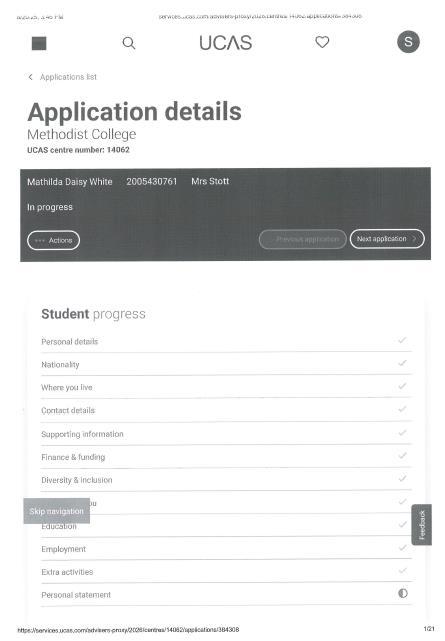
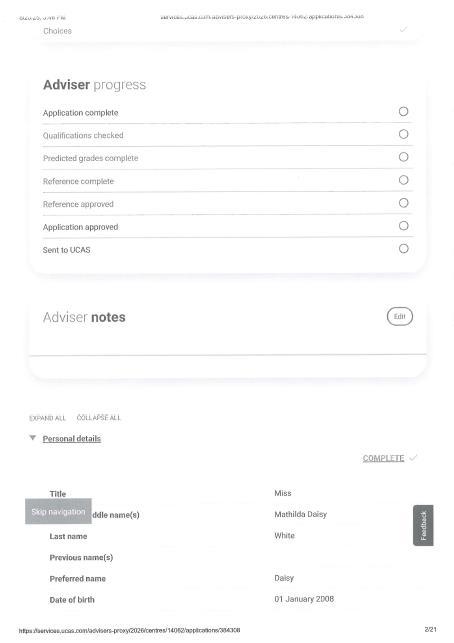
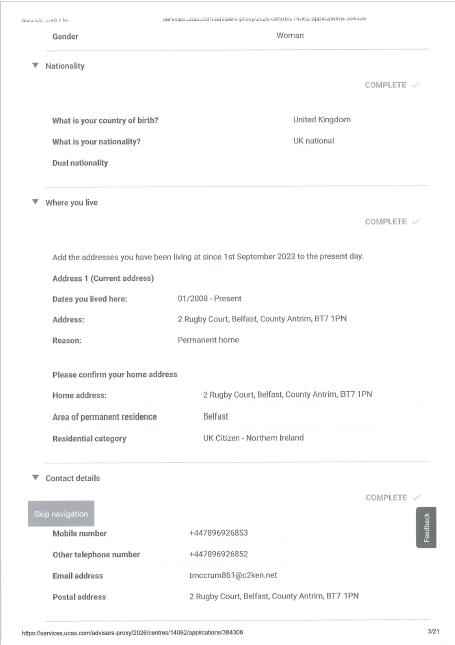
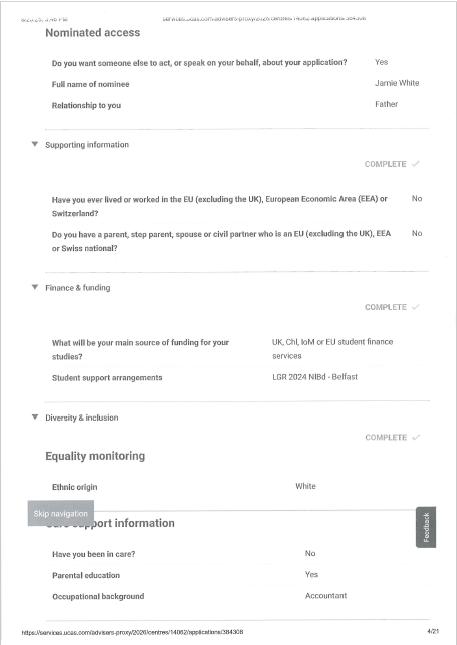
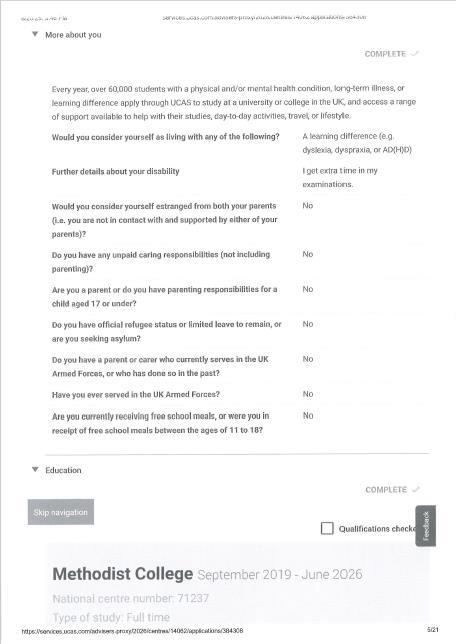

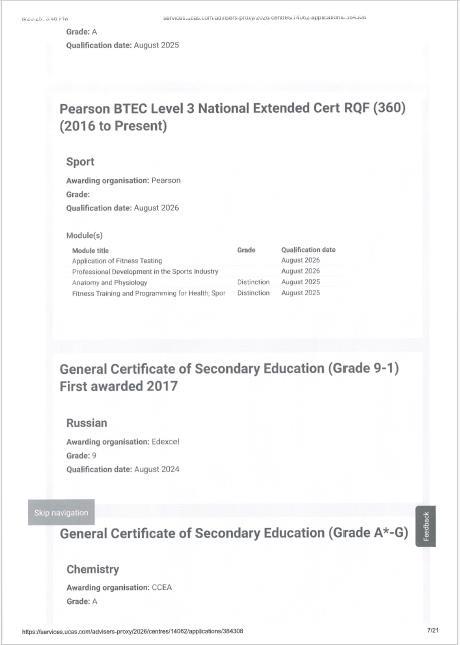
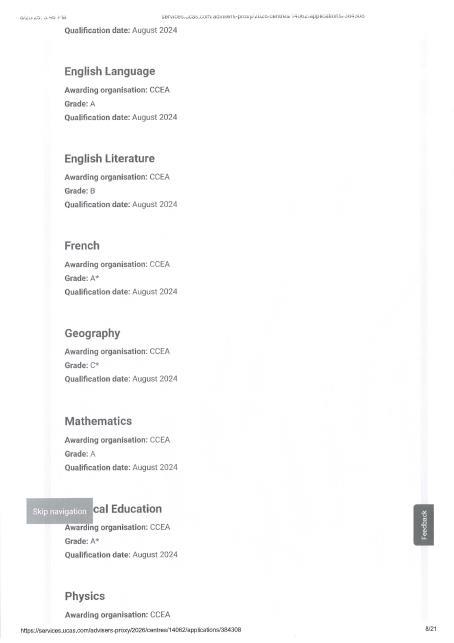

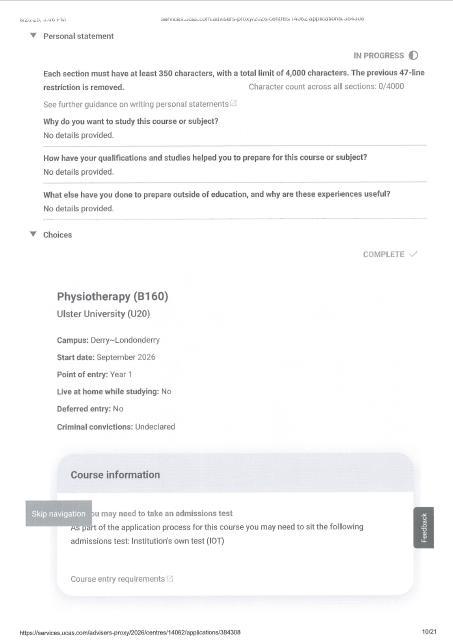
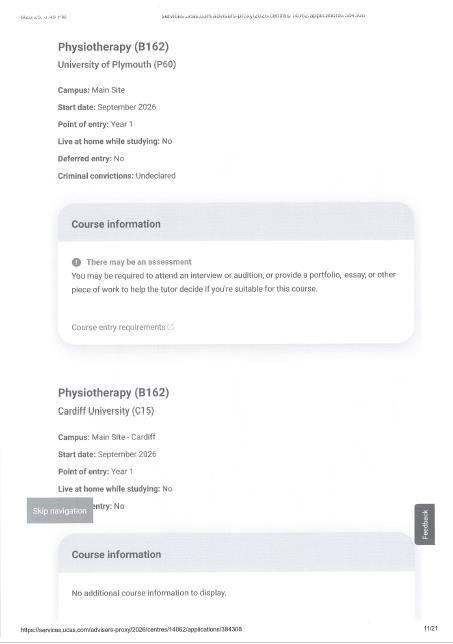
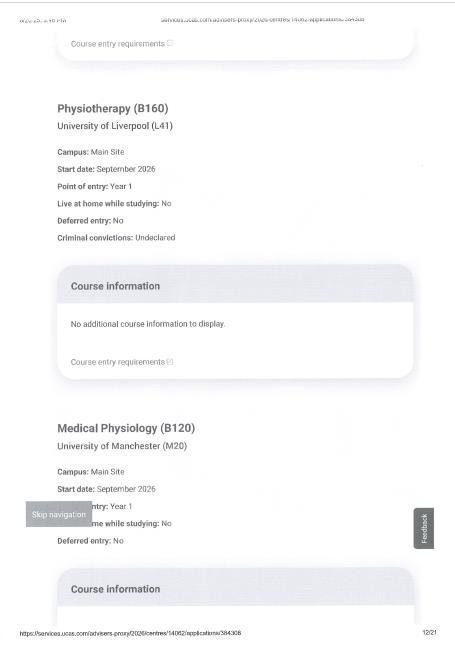
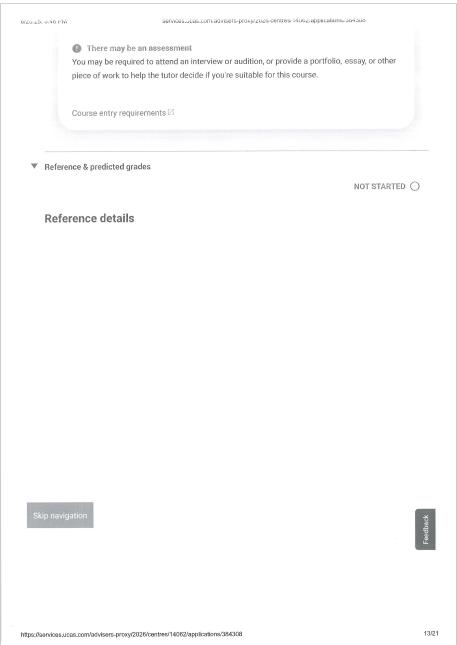
UNIVERSITY APPLICATIONS - Notes
The personal statement is very important. It may be the applicant’s only contact with the selector. Please assist your son or daughter to complete their personal statement, by checking content, spelling and grammar.
Students should contact course tutors or admissions tutors to ensure that they meet fully the entrance requirements for their chosen course and to request departmental materials.
Discuss seriously making an application to a home university. Students often change their mind about going away.
When choosing courses students should always look for the “value added factor” such as paid placements or study opportunities abroad. They should make full use of the Options Higher Education Convention this weekend to firm up their choices.
It is not advisable to apply to only 5 from Bristol, Durham, Edinburgh, Oxford, Cambridge, LSE, Nottingham, UCL and Warwick on one application as this could result in receiving no offers because of the volume of applications which they receive for high demand courses.
Students may leave one application space blank, as this enables them to apply for an alternative course later in the year, especially if they change their mind about the choices made.
If a student is unsuccessful in all the courses applied for, he/she should ask for a change of course offer from the universities to which he/she has already applied.
A student can apply to UCAS and CAO (the Central Applications Office in the Republic of Ireland), and they do not have to make their final choice until August 2024
There are aptitude tests for some Law courses (LNAT) and medical schools will require either the BMAT or the UCAT.
If you are embarking on UCAS for the first time or have any concerns do not hesitate to contact your son’s/daughter’s UCAS tutor.
If you are concerned about decisions/rejections from a university, contact the Admissions Office at once and request feedback. They refuse to talk to us about students because of data protection. However, if you send us a copy of the letter, we will try to do our best for the student.
It is advisable to obtain a folder in which to keep all communication which comes from UCAS or the universities. If the student does not understand the content of a letter, it should be brought to the Careers Office.
The school’s deadline for the completion of all forms for Oxbridge, Medicine, Dentistry and Veterinary Science to the school is 24 September 2024. All other UCAS forms must be handed in by the 15 November to your Careers Tutor.
Under no circumstances must a student withdraw from UCAS without consulting his/her Tutor or Mrs Stott.
Students need to focus on academic work so that they realise their ambitions and fulfil their potential.
Prioritising and time management are crucial this year. Those who have part-time jobs may need to review the hours which they work.
Alarm bells should ring if students claim to have no work to do or they have finished it in school. They will always have work to do.
Please encourage your son/daughter to attend their interview with their Careers Tutor and meet the deadlines which their Tutor sets when corrections need to be made. Quite often we are left sitting in our offices because they do not attend.
UNIVERSITY APPLICATIONS – Notes Continued
This is a very stressful time for students, parents and teachers. By keeping in contact with us when you have particular concerns, it will help us to face difficulties early and with luck to resolve them.
STRANMILLIS UNIVERSITY COLLEGE
ST. MARY’S UNIVERSITY COLLEGE*
Stranmillis University College and St. Mary’s University College are now Colleges of Queen’s University of Belfast. The Colleges offer a range of undergraduate programmes in the Education sector as well as in Early Childhood Studies, Health and Leisure Studies and Liberal Arts.
Applications for all full-time courses of undergraduate study at Stranmillis University College are through UCAS.
There are two routes into teaching. The consecutive pattern of training consists of a primary degree (e.g., B.A., B.Sc.) followed by a one-year course of professional training leading to the Post Graduate Certificate in Education. Alternatively, it is possible, after A Levels, to follow a course involving the concurrent study of a subject and professional preparation, leading to the degree of Bachelor of Education. Whichever route a student chooses, successful completion of the course brings a University degree and qualified teacher status.
At Stranmillis University College the approximate annual intake to the B.Ed. course is 70 students, chosen from over 1000 applicants. These students, preparing to teach in primary schools, must choose their main subject from the following list.
All students will take Core Studies (Primary) as the Subsidiary Subject.
B.Ed. applicants may be invited for interview in February and will be sent some advice on preparing for the interview. A short presentation may also be required.
Obviously, the ratio of applicants to places is high and so this leads to considerable disappointment for many people. Applicants should bear in mind that very high-grade requirements need to be met, especially in the most popular subject areas such as Geography, History, R.E. and English. Successful applicants in these areas may have achieved a combination of A and B grades at A Level. The less popular subject areas may have slightly lower grade requirements.
Stranmillis and St. Mary’s have a close working relationship. Joint teaching takes place in a number of subjects which are offered in both institutions. The Colleges are currently establishing partnerships with similar higher education institutions throughout the European Union and beyond. These will offer students the opportunity to study and work in other countries as part of the undergraduate course.
St. Mary’s University College New Admissions Procedures
St. Mary’s University College operates outside the UCAS system. All applications for entry to the College in 2024 must be made directly to the Admissions Office in the College.
OXFORD AND CAMBRIDGE + ENTRANCE TESTS FOR OTHER UNIVERSITIES
There has tended to be a certain mystique about these universities and there are often two assumptions, summed up as follows: “Oxford and Cambridge are the best universities, and anyone who has a chance of getting a place should grasp it”, and “I couldn’t get in, I’m not good enough”. Not infrequently the first assumption is made by parents and the second by potential applicants; neither is necessarily correct. It is true that Cambridge and Oxford are two of the great universities of the world with an international reputation for scholarship and research, a history stretching back many centuries and academic staff who are highly regarded in their own fields. However, the course they offer may not be what some students are seeking, while for others, even those of high ability, the environment would simply not be right and there are other fine universities which may be more suitable. It is also true that the competition for places is severe and each year many very able young people fail to secure places, but those who are successful are by no means all in the ‘genius’ category.
What steps then should be taken before deciding whether to make an application to either university? As with any other decision about higher education, careful research is important before coming to a conclusion. The place to start is the official website of each of the two universities which gives information about Colleges and courses, as does the prospectus.
In addition, each College has its own prospectus and website and often also information sheets about individual subjects. Some of the Faculties publish booklets about the courses they offer. If it is at all possible, it is extremely valuable to pay a visit to either or both places. This can be done by making individual arrangements with the Colleges, all of which run ‘Open Days’, but it is equally possible to decide to visit at other times.
What academic standard should a potential applicant have reached? In general, those who apply should be capable of obtaining at least A*A A in at least three A-Level subjects. Again, a suitable GCSE background for this purpose would include a significant number of A* and A grades e.g., 9 A* grades, while AS Level outcomes should be grade A with very high marks > 90%. Anyone who fulfils these criteria could reasonably consider the possibility of an application. All who are thinking of applying should seek advice in school, both from their subject teachers and from Mrs Stott, who has specific responsibility for applications to Oxford and Cambridge.
There will be some who are of the right academic standing and for whom the courses are appropriate who may be prevented from applying because they think the cost will be too great, or because they believe that all Cambridge and Oxford students are from very wealthy and privileged backgrounds. We would not like to think that anyone was deterred solely for reasons of cost without consulting further and exploring the possibility of grants and bursaries. Indeed, the cost of attending Oxford or Cambridge may well be less than for many other places, and the student body comes from all backgrounds.
The closing date for applications is 15 October 2025. Several subjects now require applicants to take written tests early in November, some examples are detailed below but the university website must also be checked.
These tests are now run on-line by Pearson. It is imperative that you check application deadlines and apply on time!
https://www.undergraduate.study.cam.ac.uk/apply/application-dates-deadlines
https://www.ox.ac.uk/admissions/undergraduate/applying-to-oxford/guide/admissions-tests
All medical schools require the UCAT: https://www.ucat.ac.uk/
APPLICATIONS TO THE REPUBLIC OF IRELAND
These are made through the Central Applications Office (CAO) which is totally separate from UCAS. Applicants may hold two offers from UCAS and apply for up to 10 courses in CAO from the degree list. Courses must be listed in order of preference
There is no personal statement by the applicant or academic reference. Acceptance is on A-Level grades. The closing date for applications is 1 February 2026. CAO applications are dealt with in NovemberJanuary of the Upper Sixth year. Application is made on-line.
On publication of results a first round of offers takes place late in August and a second round at the end of August. Each applicant may be offered a place in the highest of his/her preferences to which he/she is entitled. An offer of a place will lapse unless accepted within a specified period and unless a deposit is received by CAO before 5.00pm on the reply date set out in the offer notice.
All students applying through CAO should consult Mrs Stott for help with the application. These points are due to change for students applying for 2025 entry.
Universities and associated colleges:
Applicants are scored on the basis of their best four A Levels or 3 A Levels and an AS Level in a different subject from the same or preceding year. The maximum number of points that can be achieved is 600. Note: Applicants presenting Grade E or above in one of A Level Mathematics, Further Mathematics or Pure Mathematics will have 25 points added to their score for that subject. The bonus points will only be relevant where that subject is scored as one of the applicant’s best four subjects for points purposes. This gives a maximum possible score of 625.
1. The best 4 A Level results in a single sitting
2. The best 3 A Level results in a single sitting, plus the best AS Level result from the previous or the same sitting
3. The best 2 A Level subject results in a single sitting, plus the best 2 results at AS Level from the previous or the same sitting
4. The best 1 A Level subject result in a single sitting, plus the best 3 results at AS level from the previous or the same sitting
5. The best 4 AS Level subject results in a single sitting
Important information for all GCE Applicants
• Evidence of GCSE examinations must be supplied in order to meet minimum entry requirements.
Applicants are advised to contact the Admissions Office to verify entrance requirements.
Applicants for Medicine will be required to sit the HPAT-Ireland aptitude test in February 2026. The test is taken in Dublin. More details on this test can be found on the website – www.hpat-ireland.acer.edu.au
STUDENT FINANCE
Application forms for Student Finance N.I. are available in the spring as an online application only. Every year a considerable number of students’ do not submit the forms by the deadlines. This can cause their fee payments to be delayed or they could lose their full entitlement to student finance.
SPONSORSHIP
Sponsorship is a contract between the student and the employer. The student agrees to attend a course of study and works for the employer during parts of the university vacation.
Some employers insist that you work for them for a year before the degree course. A few insist that you work for them for a fixed period of time after graduation, but most do not.
Average sponsorship is around £1200.00 per annum, but this can vary. Full-time work undertaken during vacations is paid at the rate of £130.00 to £200.00 per week.
In the past sponsorship was focused on engineering but increasingly students reading computer science, business, actuarial science, economics and many others are finding sponsorship.
Students can apply for sponsorship from now onwards. Most places will be allocated by next February, so early application is essential.
Having chosen potential sponsors, students should write requesting a brochure and an application form. It is advisable to make several applications.
SCHOLARSHIPS
Scholarships are given by commercial bodies representing particular industrial groups e.g., Institute of Civil Engineers.
All universities have scholarships of their own to distribute among their students, details of which can be found in prospectuses or on the website. All universities offer bursaries to provide financial assistance to the most deserving.
There are some lucrative sports scholarships available.
GAP YEAR
Reference books dealing with Gap Year activities are available on request in the Careers Service and in the College Library.
USEFUL CONTACT DETAILS
Education Authority
40 Academy Street
BELFAST
BT1 2NQ
Telephone: 028 9056 4000
Website: https://www.eani.org.uk/
Now acting on behalf of:
Belfast Education and Library Board (BELB)
North Eastern Education and Library Board (NEELB)
South Eastern Education and Library Board (SEELB)
Southern Education and Library Board (SELB)
Western Education and Library Board (WELB)
Department of Education for Northern Ireland
Rathgael House
43 Balloo Road
BANGOR
BT19 7PR
Telephone: 028 9127 9279
Website: https://www.education-ni.gov.uk/contact
THURSDAY 13 AUGUST 2026
IT IS IMPERATIVE THAT UPPER SIXTH PUPILS ARE AVAILABLE WHEN RESULTS ARE PUBLISHED.
ALL UPPER SIXTH PUPILS ARE REQUIRED TO ATTEND A MEETING WITH THEIR UCAS TUTOR
AT 9.00AM
IN WHITLA HALL
SO THAT FINAL DESTINATIONS CAN BE CONFIRMED AND THAT THOSE WHO HAVE DIFFICULTIES CAN BE HELPED.
PARENTS ARE REQUESTED TO ENSURE THAT THEIR SON/DAUGHTER WILL BE AVAILABLE AT THIS TIME AND THAT THEY REPORT TO THE COLLEGE AS REQUIRED.
HOLIDAYS SHOULD NOT BE TAKEN UNTIL AFTER RESULTS DAY AT LEAST BECAUSE OF CLEARING IMPLICATIONS
